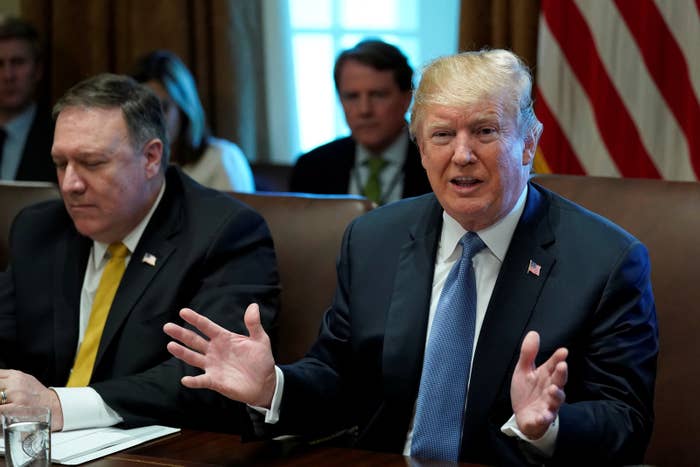
Republicans failed to pass a conservative immigration bill Thursday, leaving them with one last chance to pass a fix for the DACA population and families being separated at the border, and even that plan is in trouble.
The Securing America’s Future Act, also known as the Goodlatte bill after its sponsor, Rep. Bob Goodlatte, represented a wish list of conservative priorities, like funding President Trump’s border wall and requiring employers to check the citizenship status of their workers.
The Goodlatte bill took the harshest approach to DACA recipients of any legislation. It would have provided a citizenship path to only a portion of the DACA population, and that path was extremely strict — people must wait 11 years and they can lose their legal status for things like a drunk driving conviction or not having “good moral character.”
It would also offer a fix to the child separation crisis by allowing children to be detained indefinitely in immigrant detention facilities along with their parents. This would allow families making an asylum claim to be detained together for the months or years it takes to process their claims. Trump has offered support for this plan, though Democrats fiercely oppose it on the basis that it is inhumane.
The Goodlatte bill would also have deeply cut legal immigration rates. It banned US citizens from sponsoring parents, siblings, or married adult children for citizenship. This would cut immigration by a projected 420,000 people per year, or 38%.
Even the bill’s champions conceded it had little to no chance of passing the House. The bill failed on a vote of 193–231 Thursday. No Democrat voted for it, and 41 Republicans opposed it, enough to kill the bill.
Trump supported the bill and made a trip to Capitol Hill on Tuesday to make a final pitch to Republicans to back it. Members said, however, that Trump spent most of the time talking about other issues, like trade, and even made a jab at Rep. Mark Sanford, who lost his reelection primary last week, earning boos from members.
Attention now turns to the so-called compromise bill, which will go to a vote Friday. The bill was negotiated between moderate Republicans and the conservative Freedom Caucus, and is similar to Goodlatte in that it funds the border wall, cuts legal immigration, and would allow children to be detained with their parents at the border.
But the bill also contains major differences, such as dropping the requirement to verify workers’ citizenship. It also provides a more lenient citizenship path for DACA recipients, which has fewer conditions and takes four years rather than 11.
Republicans tried to strike a balance to win over enough moderates, while alienating the fewest members of the Freedom Caucus, to reach 218 votes. Trump also said he would sign the bill.
But Freedom Caucus members have refused to offer support for the bill, saying it does not go far enough. They appeared to dig in their heels Thursday. Freedom Caucus chair Mark Meadows emerged from a midday meeting with Republican leadership saying his group wants to see changes to the bill. A planned vote Thursday afternoon was pushed to Friday, as Republicans continued to meet throughout the day. It seems likely that the compromise bill, a result of weeks of negotiations, could ultimately receive even less support than the Goodlatte proposal.
Republican Rep. Mike Coffman, who supports the compromise bill, said he was concerned about its chances of success, in part blaming the president for not getting more forcefully behind it. "I'm very disappointed. I think the notion of Republicans putting up two bills and the president saying, 'oh I'd be happy if either one passes,' I think was not a workable strategy. The president should have gotten behind one bill," Coffman said.
That leaves House Republicans back at square one — with no plan to fix DACA or the family separation issue. Trump issued an executive order Wednesday to halt the separations, but it’s unclear what that order will do practically, and it is, at best, a temporary solution.
Coffman said Thursday that fellow moderate Republicans pushing for a solution on DACA and Trump's "zero tolerance" policy could revive a discharge petition with Democrats to force a vote on bipartisan legislation in the future.
"If this whole process fails I think some folks held back on the discharge petition because they wanted to give Republican leadership a chance. They’ve had their chance. ... If there’s nothing to resurrect this process then there is no alternative but a discharge petition, a bipartisan effort to pass something on immigration out of the House," Coffman said.
Asked earlier Thursday what their plan C is, House Speaker Paul Ryan wouldn’t answer the question, saying, “we will cross that bridge if we get to it.” Ryan later suggested Republicans would return to the president’s “four pillars,” a plan that stands no chance of passing the House or Senate.
Nidhi Prakash contributed additional reporting to this story.

